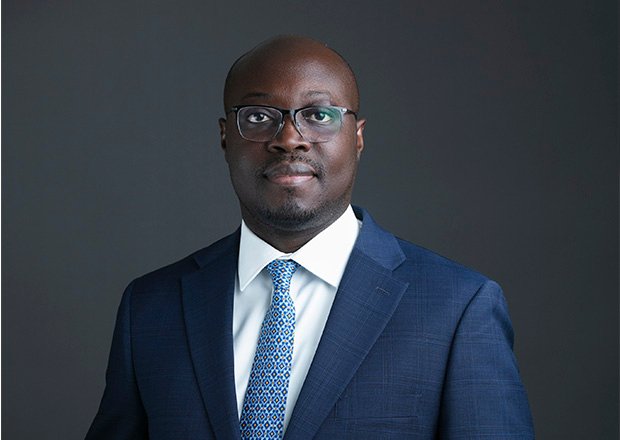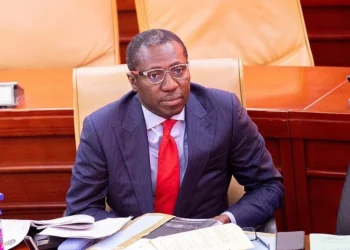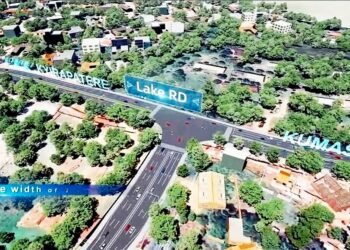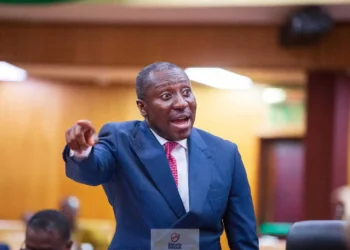The Minister for Finance, Hon. Dr. Cassiel Ato Forson, has outlined major interventions to improve basic education, emphasizing enhanced infrastructure, adequate textbooks, and sustained investment.
The minister noted how it has become evident that Ghana’s basic education sector has suffered years of neglect, largely due to an over-concentration of resources, policies, and attention on secondary education.
He emphasized that while secondary education is undeniably important, the imbalance has created a weak foundation for learners, leaving many children without the essential skills and tools required to thrive academically and socially.
He further explained that this neglect has manifested in inadequate infrastructure, overcrowded classrooms, and insufficient teaching and learning materials at the primary level.

The Minister for Finance emphasized that these inadequacies are undermining the very base upon which the entire educational system rests.
In recognition of this challenge, the minister stated that the government has taken a decisive step to redirect focus toward strengthening basic education by eliminating the inadequacies currently facing the sector.
Dr. Ato Forson announced the government’s plans to enhance infrastructure across existing schools and the construction of new schools at the basic level, ensuring that classrooms are safe, conducive, and well-equipped for effective learning.
He also stated that the government is committed to improving the provision of textbooks so that every child has access to the necessary materials to support their studies.

“In this regard, the government will construct 200 new junior high schools, 200 new primary schools, 200 kindergartens, 400 4-unit teachers’ bungalows, and 400 places of convenience in underserved communities.”
Hon. Dr. Cassiel Ato Forson, Minister for Finance
The Minister for Finance explained that each of these facilities will be fully furnished to ensure effective teaching and learning.
According to him, this strategic investment will expand educational opportunities, granting access to more than 200,000 additional students annually and strengthening the foundation of basic education nationwide.
“Mr. Speaker, the government will provide free comprehensive curricula-based textbooks covering the following: four (4) sets of KG books and workbooks for about 1 million learners, four (4) sets of primary textbooks for 2 million learners, and nine (9) sets of JHS 3 textbooks for 1 million learners.”
Hon. Dr. Cassiel Ato Forson, Minister for Finance
The minister also stated that the Ghana Publishing Company will be officially mandated to handle the printing of all required textbooks, ensuring timely delivery, improved accessibility, and consistent quality for students across the nation’s basic education system.
Dr. Ato Forson emphasized that government commitment to improving basic education will not amount to losing sight of the needs of secondary education.
He explained that while resources will be committed to revitalizing basic education in terms of enhanced infrastructure and learning materials, the needs of secondary education will still be taken care of.
“Mr. Speaker, the government will again provide the following for secondary schools and some selected district education directorates: 2 million pieces of metal mono-desks and chairs, 200 units of 66-seater buses, 200 double-cabin pickups, and 50 salon cars.”
Hon. Dr. Cassiel Ato Forson, Minister for Finance
The Minister for Finance emphasized that education remains the most powerful and enduring investment in Ghana’s future.
He added that education is the foundation upon which Ghana can build the human capital necessary to drive innovation, productivity, and sustainable growth.

He further noted that when citizens are equipped with knowledge, skills, and values, they are empowered to contribute meaningfully to national development.
According to him, this investment is not only about classrooms and textbooks but also about shaping minds, nurturing creativity, and fostering resilience.
The minister further contended that through education, Ghana can prepare a generation capable of sustaining the country’s industrialization agenda, advancing technology, and strengthening the country’s democracy.
The minister therefore emphasized that these measures are not merely corrective but strategic, as they aim to restore balance in the education system, empower teachers, and provide children with a strong foundation.
He added that by prioritizing basic education, the government seeks to secure the future of the nation’s human capital.
READ ALSO: 2026 Budget: Government to Expand Gas Output to Cut Generation Costs by 75%























